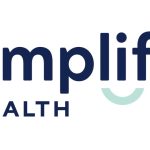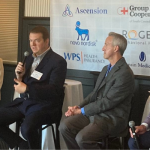
UW Health fights cancer by taking a page from… Rwanda
MADISON- One developing country – Rwanda — has vaccinated 95 percent of 12- to 15-year-old girls against human papillomavirus (HPV). In contrast, U.S. HPV vaccination rates are low. Fewer than 40 percent of 13 to 17-year-old girls get all three doses. A UW Health infectious-disease and global health specialist said the U.S. could learn from the Rwanda project.
Dr. James Conway said Rwanda began an HPV vaccine program in 2011 after recognizing the burden, suffering and deaths associated with cervical cancer . A collaboration of theRwandan government, cancer-control groups, community health workers and pharmaceutical companies resulted in a program to vaccinate girls – primarily in schools but also reaching girls not in school. The vaccine was initially donated by one of the vaccine manufacturers.
“Unfortunately, Rwanda’s specific approach wouldn’t work in this country,” said Conway. “School-based programs would not be practical here. The vaccines are expensive, and insurance providers would somehow have to be billed for each student since public funds do not provide vaccines for all individuals here.” But, Conway said, there still are things to take away from the Rwanda project.
“Rwanda is an example of the amazing things that can be done with collaboration, prioritization and removal of barriers,” said Conway. The UW Health Immunization Task Force HPV Workgroup has taken a page from Rwanda by collaborating with groups from across the UW Health system. This cooperative approach is striving to increase awareness among parents, patients and providers about the importance of routine HPV immunization for all pre-teen boys and girls. A similar collaboration organized by the Wisconsin chapter of the American Academy of Pediatrics, the Wisconsin Department of Health Services and the Wisconsin Comprehensive Cancer Coalition is working with 19 immunization coalitions, health systems and county health departments around the state to increase vaccination rates. In Wisconsin last year, 40 percent of adolescents aged 13 to 18 got one dose. Twenty-three percent got all three doses.
“It’s like a thousand-piece puzzle,” said Conway. “We have all the pieces but we haven’t put them all together yet.”
One of the puzzle pieces is convincing primary-care providers to give stronger recommendations to families of both girls and boys for the three-dose series. Conway said providers have little problem following the current recommendations for 11 to 12- year-olds, for the meningococcal and tetanus, diphtheria and pertussis (T-dap) vaccines.
“Yet HPV is the most common sexually transmitted disease and meningococcal disease is very rare,” said Conway. “We have a vaccine to prevent this very common disease that causes a variety of cancers, but providers hesitate to strongly recommend it.”
HPV can be transmitted by a variety of activities like kissing, not just by sexual intercourse.
“People are still not connecting the dots that HPV causes cancer, and yet is preventable,” said Conway. “In teens, the infection is likely to become more chronic, which is why early immunization is so critical,” said Conway. Chronic HPV infections are the eventual cause of pre-cancerous conditions and cancers.
Cervical cancer is most commonly associated with HPV infection. But Conway said HPV can also cause many head and neck cancers, and rates are rising steeply in the United States. In 2012, the Wisconsin Cancer Reporting System said there were nearly 800 new cases of oral cancers and 175 deaths. Cervical cancer was second with 191 new cases in Wisconsin and 54 deaths.
“If we follow Rwanda’s lead with collaboration and creative problem-solving, we can reduce cancer rates in Wisconsin and the U.S. dramatically,” said Conway. “We also have the opportunity to be even broader in our impact, by immunizing both girls and boys. This could be a game-changer for an entire generation of individuals.”





